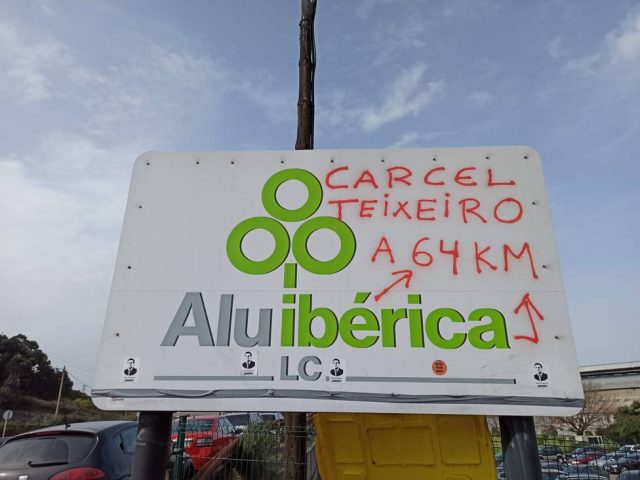
In 1960, Spain was strongly developing its industry. Among many other projects, the production of aluminium was started in La Coruna, a province capital city in the northwestern region of Galicia.
The company, called Alu Iberica, was sold to a US investor in 1998 and had an annual turnover of EUR 130 million. In 2019, one year after his accession to power in Madrid, socialist Prime Minister Pedro Sanchez announced the government had overseen an agreement between the company management and the main trade unions, whereby activities would cease after sixty years of business.
The reason behind this decadence is a mixture of energy policy, international commerce and geostrategy.
Indeed, on the one hand the inflation caused by Mrs. Von der Leyen’s Next Generation abundant money and Putin’s war in Ukraine have sparked the prices of energy and raw materials needed for metal alloy, such as magnesium. Electricity and gas costs were multiplied by ten in 2022 compared to 2021. Magnesium global spot prices, controlled by China at an 89% of total world production, increased by 157% between September and October 2021. Therefore, the variable costs of Alu Iberica have soared impressively.
On the other hand, the European Union has not shown itself capable of preventing China’s aluminum subsidising and offer increase in global markets, with a clear purpose of bringing down prices through a dumpling strategy to acquire a quasi-duopoly, together with Russia. At such level of world prices, Alu Iberica’s revenues would naturally plummet.
As a consequence, Alu Iberica’s 303 employees were dismissed last year. Worse still, for each of those jobs lost, an estimated ratio of 1.03 extra redundancies are produced because of business decrease for providers of the plant in La Coruna (ancillary effect). Also the Spanish administration loses revenues deriving from taxes which will cease to be accrued as of this year.
The Government tutored agreement between the company and the trade unions has awarded each employee a compensation of 60 salary days per year of seniority in the company plus a one off amount of EUR 10,000.
But what about the EU? The European Globalisation Adjustment Fund for Displaced Workers (EGF) is precisely indicated for cases of redundancies due to cessation of activities in a context of economic difficulty, as in the case of Alu Iberica.
As a contribution to these workers in Galicia, the European Commission has proposed to put forward an amount of EUR 1,275,000, with the Spanish government committing a further EUR 225,000. Therefore, a total of EUR 1,500,000 would be made available by Brussels and Madrid, that is, a value per worker of EUR 4,950.
However, no direct payment will be transferred to these workers and their families. Instead, they are supposed to receive assistance for job search, occupational guidance and reintegration in the labour market. These would be fostered as follows: workers who take part in the mentioned assistance measures and follow an agreed pathway to market reintegration would receive up to EUR 400. They will also be offered EUR 0.19/kilometre contribution to commuting expenses, plus additional transport poverty costs such as tolls and parking costs. If they have caring responsibilities, they will receive up to EUR 20 per day of participation in the fund’s accompanying measures. Finally, those who return to employment as dependent workers or as self-employed will receive EUR 200 per month, for a maximum period of six months.
In conclusion, this case-study of Alu Iberica reveals the serious contradictions entailed by the European Green Deal and the current Union’s global strategy. A problem is caused to national industry, which will then be partially repaired by subsidies made available by the pool of 27 from Brussels. The fund does not address the causes of the problem, but rather contributes to perpetuate it.
Despite this internal lack of logic, the European Parliament committee of Employment and Social Affairs, in its session of 22 March 2023, decided to approve the allocation of funds for the lockdown of Alu Iberica, by an overwhelming majority of 43 votes in favour and 1 abstention.
Source of image: Cope



 Subscribe
Subscribe